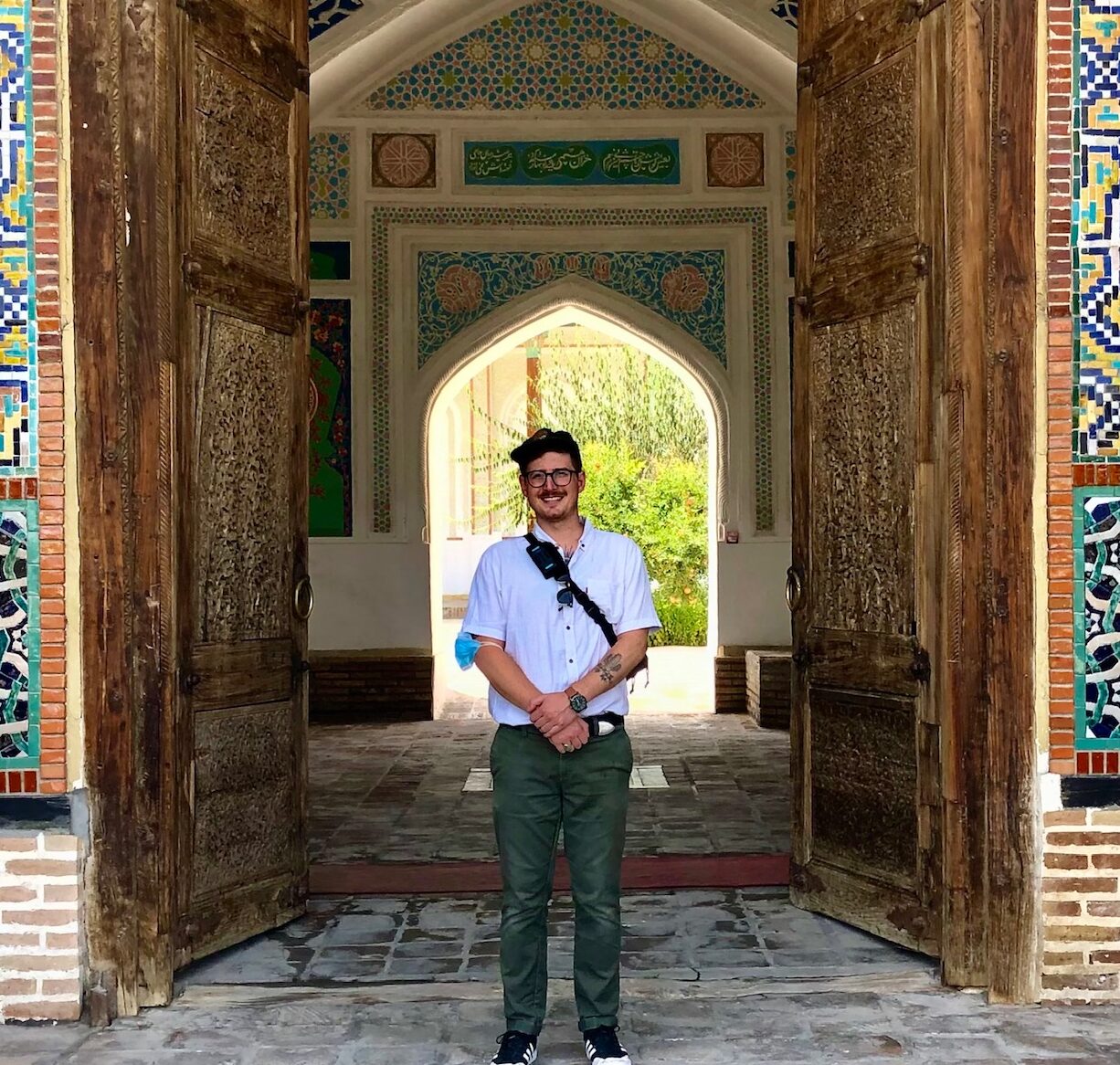I am a Ph.D. student interested in the histories of the Soviet Union and Central Asia. I am especially interested in the history of the Uzbek Soviet Socialist Republic (Uzbekistan) during the qayta qurish and oshkoralik (perestroika and glasnost’ in Russian, respectively) reform programs of 1986-1991. My research interrogates how Central Asians interpreted and responded to the centralized calls to reform emanating from Moscow and how these populations experienced the dynamic final years of the Soviet Union. Using local-language primary sources and oral history methodologies, my work seeks to highlight Central Asian perspectives and agency as local populations seized upon the period’s opportunities for change and advocated for their visions of the past, present, and future.
Presently, my research is focused on the Writers’ Union of Uzbekistan (O’zbekiston SSR Yozuvchilar Soyuzi) in the late 1980s, as Union members returned to Central Asian literary and political figures of the early 20th century (many of whom were murdered in the Great Terror of the 1930s) as sources of inspiration for the future of Uzbek identity and culture.
My M.A. thesis, “Qoralash: Cotton, Corruption, and the Assault on Uzbek National Identity in the Uzbek Soviet Socialist Republic, 1983-1991”, explores the media discourse surrounding the Uzbek Cotton Scandal of the 1980s and demonstrates how glasnost’ resulted in the revival of orientalist tropes and cast corruption as an Uzbek cultural problem, rather than a systemic Soviet problem. The “nationalization” of the Scandal led to broad condemnations of Uzbek cultural practices, a questioning of the Uzbek Republic’s place in the USSR, and ultimately provided Moscow with a justification for increased centralized control over the Republic during the perestroika period.
Spring 2025: TA – Hist 20: Science and the Modern World
Winter 2025: TA – Hist 2B: World History, 1000-1700
Fall 2024: TA – Hist 5: History of the Present
Spring 2024: TA – Hist 2C: World History, 1700-Present
Winter 2024: TA – Hist 17B: The American People, 1840-1920
Fall 2023: Reader – Hist 193F: Food in World History
Awards and Fellowships
- UCSB History Department Fellowship (2022-23)
- Title VIII Fellowship, Arizona State University, Critical Languages Institute – Intermediate Uzbek (2021)
- FLAS Scholarship, University of Wisconsin Madison, Central Eurasian Studies Summer Institute – Elementary Tajik (2019)
- Title VIII Fellowship, Arizona State University, Critical Languages Institute – Elementary Uzbek (2018)
- CSU Long Beach Romance, German and Russian Languages and Literatures Department – Russian Program Scholarship (2016)
Professional Affiliations
- Member of the Association for Slavic, East European and Eurasian Studies
- Member of Central Eurasian Studies Society
- Member of Dobro Slovo National Slavic Honor Society
“Xo‘sh, yillar davomida armiya jamiyatga nima berdiyu jamiyat armiyaga nima berdi…Sharofiddinning qishlog‘i bilan nohiya o‘rtasida telefon aloqasi yo‘q, «tez yordam» chaqirolmay, kasal uzilishi mumkin; ammo tovushdan tez uchuvchi raketalar bor. Yana: o‘zbek, dehqonining og‘irini yengil qiladigan paxta mashinasi yaratilmaydi-yu, parashyutdan suvga tashlasa, cho‘kmaydigan tanklar bor!”
“Consider what the army has given society and what society has given the army over the years…there is no telephone connection between Sharofiddin’s village and the district center and a sick person cannot calling for an ambulance may be disconnected; but we have rockets that can fly at supersonic speeds. Again: a cotton machine will not be designed to lighten the Uzbek farmer’s burden, yet we have tanks that can be parachuted into water without sinking!”
-Karim Bahriyev, 1989

